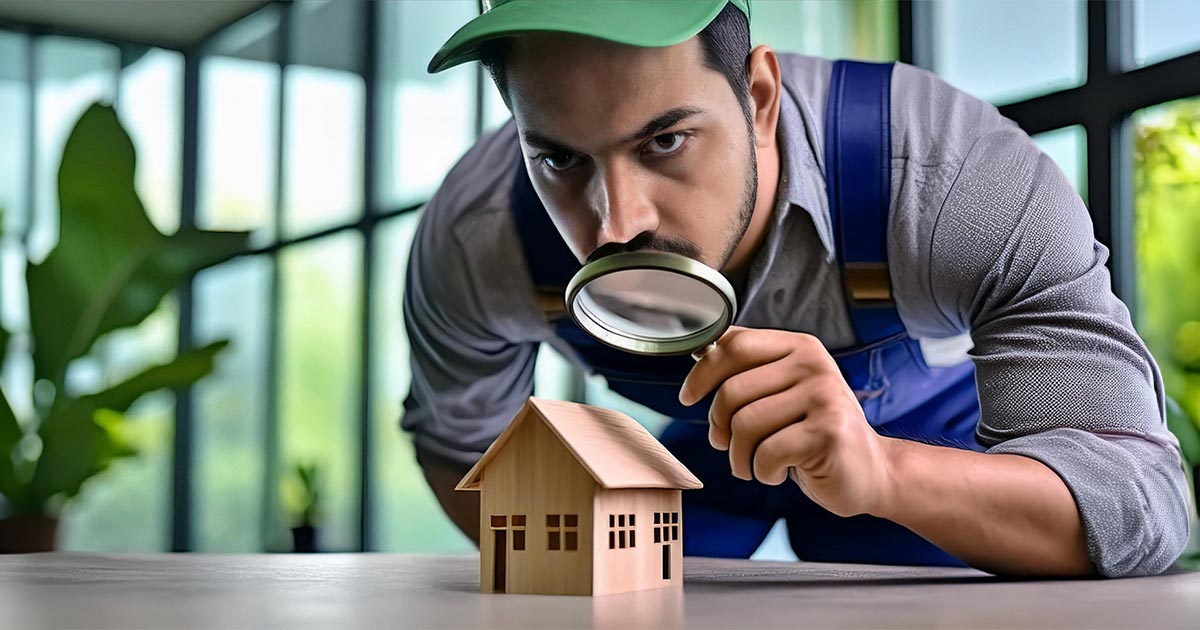Why Should You Consider Regular Home Inspections?

When acquiring a property, the last thing you want to do is spend extra money on purpose. While house inspections are optional, skipping them may be pricey.
A skilled inspection can help you save thousands of dollars on unnecessary repairs. If you’re not sure whether to invest in this service, here’s a breakdown of the expenses.
Home Inspections, Simplified
After an offer is accepted by the seller, the potential buyer arranges for a shared inspection. The inspector, an impartial third party, inspects the home from top to bottom.
Inspectors visually inspect structural features such as floors, ceilings, walls, windows, doors, and basements. They also inspect the interior plumbing, insulation, electrical systems, and heating and air conditioning systems.
The homeowner has requested a particular examination that focuses on a specific area of concern. We’ll go over both categories below.
Even Bad News is Good News
An inspector’s report gives a complete examination of a home’s structure. The inspector will identify any faults that arise. This information allows you to better understand the expenditures and efforts necessary to preserve the property.
The inspection report, whether good or negative, is valuable. Knowing a home’s shortcomings might help you renegotiate the price or force the seller to repair problems. If the seller is reluctant, you may walk away without consequence.
Cost of Home Inspection
A standard house inspection costs very little in comparison to the possible financial problems it might identify. Home inspections cost $200 to $500, with an average of $340. This extra charge is usually not included in the closing expenses.
The size of the home has a significant impact on inspection expenses. Many inspectors charge by square footage to compensate for the time and work involved.
Price per Square Footage
- Homes up to 1,000 square feet cost around $242.
- Homes about 2,000 square feet cost roughly $290.
- Homes about 3,000 square feet cost approximately $323.
- Multi-family residences above 4,000 square feet: more than $420.
Inspectors sometimes include basement and attic regions in their square footage estimates, so understand how they define total square footage before proceeding.
Additional Cost Factors
The age of the home might have an impact on inspection fees. Older properties may take longer to assess owing to specific characteristics and risks, such as ventilation and pipe difficulties.
Layout can also have an impact on prices. Modern homes with open-concept architecture are often less expensive to check, but older homes with subterranean areas cost more.
Previous renovations might complicate inspections, particularly if the extensions were constructed to different codes or had improper wiring.
Distinctive characteristics such as septic systems, swimming pools, extensive tree covering, or grade sloping toward the residence necessitate additional attention, raising the inspection cost.
What Does It Not Cover?
Common home inspections do not include structures such as pool houses, sheds, or barns. Mold, carbon monoxide, and radon tests are also prohibited.
Special inspections, whether conducted alone or in conjunction with a real estate inspection, address specific issues. Foundation evaluations can cost between $300 and $1,000, while sewer scopes can range from $250 to more than $1,200.
Mold testing costs an average of $275, while radon and asbestos testing costs between $200 and $700.
It may also be useful to have your inspector return to verify the fixes. If the seller agrees to rectify problems prior to the sale, an expert can verify the fixes. Discuss the price of this service with your inspector.
Qualifications Do Matter
Your inspector’s credentials have an influence on the cost. An novice inspector may overlook critical faults, costing you more in the long run.
Even skilled inspectors may overlook something unexpected or well-hidden. It is all part of the process of becoming a homeowner.
Avoid Buyer’s Remorse
Inspections are not legally necessary, but they are a valuable service that you should not overlook. Common inspections can help minimize buyer’s regret, while special inspections can save long-term homeowners from expensive repairs.
Word of mouth is an excellent approach to identify a reliable inspector. Ask your friends and family for referrals. If none are accessible, conduct an online search for local inspectors. Reach out to possible applicants and ask questions to locate the best house inspector for your requirements.

Editor-in-Chief • Industry Trends Writer
Ethan analyzes market shifts and predicts future developments in different industries to keep his audience well informed and ready.

